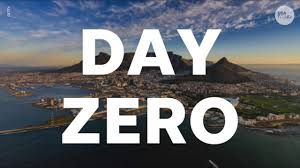OPINION - The myth of day zero: What we got wrong with water
Published on by Water Network Research, Official research team of The Water Network in Social
Here’s to 2020 being a turning point once and for all on water management
“Day Zero” is now part of the lexicon of water management.
 There are at least two things wrong with the term: The implication that it is an unavoidable surprise from mother nature, and that running out of water equally impacts everyone in society.
There are at least two things wrong with the term: The implication that it is an unavoidable surprise from mother nature, and that running out of water equally impacts everyone in society.
Both of these perceptions are wrong and will be perpetuated as long as we continue to refer to “Day Zero.”
It’s time for the public sector, businesses and civil society to implement real solutions to water scarcity and associated inequity.
In 2018, the city of Cape Town in South Africa introduced the idea of Day Zero to focus the public’s attention on managing water consumption by convincing residents to reduce water usage (Cape Town Day Zero ).
The four million residents of Cape Town were about three months away from “running out of water” (Cape Town One Year Later) authorities said. The city experienced three consecutive years of low rainfall and April 12, 2018, was to be the date of what was being called the largest drought-induced municipal water failure in modern history.
The city’s plan was for the entire population to collect its water (an estimated maximum of a two-minute shower’s-worth a day per person) from 200 centralized water centers. However, when April 12th rolled around, the city made it without turning off the taps.
A bit of luck and last-minute emergency water conservation measures managed to get the city through the crisis.
This sounds like a success story. It’s not. Here’s why.
Media
Taxonomy
- Resource Management
- Water Resources
- Urban Resource Management
- Water Resource Management
- Ministry of Water Resources
1 Comment
-
Rarely do I comment on opinion, because they are what they are, an opinion. To draw credibility one needs to reflect on the headline and counter an alternative headline. How should have the leadership of the city communicated such a complex issue to a population of 4 million?
This does not mean that the opinions raised do not have merit, however, there are more deep rooted questions to be answered. For example how do you go about preparing a society for change? What is the status of the engineer or scientist in society?
Infrastructure that may take decades to plan and build, how much more so it is to change society. Projects and design standards that are rooted to affordability, is a constant and enduring challenge. How do you communicate what may be worthwhile for future generations, which is not affordable to current generations.
Day Zero situations are part of humanities history and part of humans ability to adapt. Failure clearly has its benefits, but I agree, too much is not a good thing.